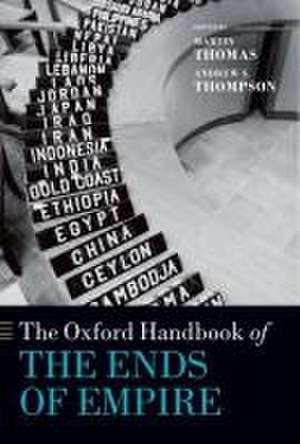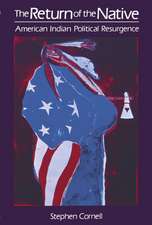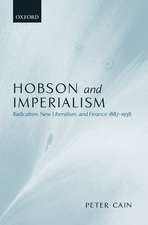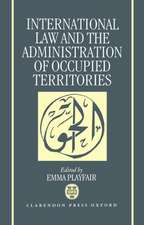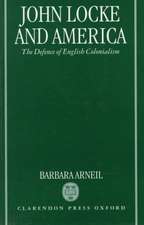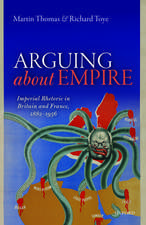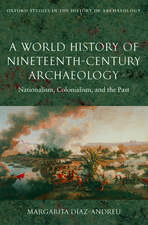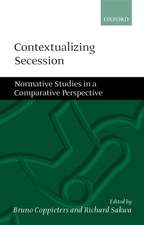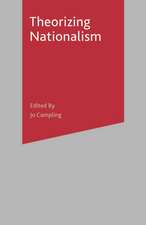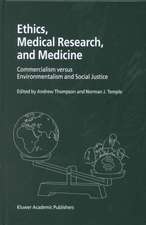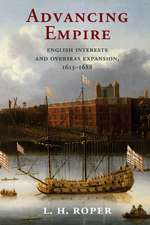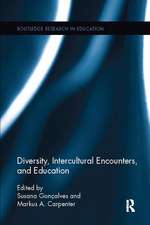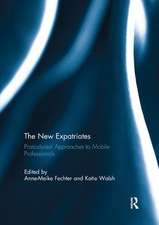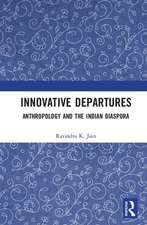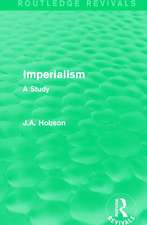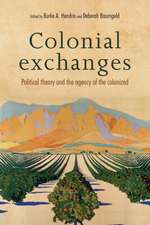The Oxford Handbook of the Ends of Empire
Editat de Martin Thomas, Andrew Thompsonen Limba Engleză Paperback – 11 dec 2023
| Toate formatele și edițiile | Preț | Express |
|---|---|---|
| Paperback (1) | 306.53 lei 10-16 zile | +111.98 lei 5-11 zile |
| OUP OXFORD – 11 dec 2023 | 306.53 lei 10-16 zile | +111.98 lei 5-11 zile |
| Hardback (1) | 901.29 lei 31-37 zile | |
| OUP OXFORD – 13 dec 2018 | 901.29 lei 31-37 zile |
Preț: 306.53 lei
Preț vechi: 359.22 lei
-15% Nou
Puncte Express: 460
Preț estimativ în valută:
58.66€ • 61.02$ • 48.43£
58.66€ • 61.02$ • 48.43£
Carte disponibilă
Livrare economică 13-19 martie
Livrare express 08-14 martie pentru 121.97 lei
Preluare comenzi: 021 569.72.76
Specificații
ISBN-13: 9780198900948
ISBN-10: 0198900945
Pagini: 800
Dimensiuni: 172 x 245 x 42 mm
Greutate: 1.41 kg
Editura: OUP OXFORD
Colecția OUP Oxford
Locul publicării:Oxford, United Kingdom
ISBN-10: 0198900945
Pagini: 800
Dimensiuni: 172 x 245 x 42 mm
Greutate: 1.41 kg
Editura: OUP OXFORD
Colecția OUP Oxford
Locul publicării:Oxford, United Kingdom
Recenzii
There are several overarching themes to the work: historicising decolonisation, unpicking the deeply complex relationship between decolonisation and globalisation - decolonisation was both a globalised and a globalising force, especially in the context of the Cold War - and shedding light upon the integral role played by asymmetric violence in decolonisation processes. This wide-ranging approach leads the reader on an odyssey through political thought, guerrilla warfare, architecture, cinema, and memory, to name but a few; bringing many diverse threads of research into a satisfyingly comprehensive volume
This impressive volume deserves to be essential reading for all students of decolonisation and, considering as it does an unusually broad range of empires, offers an original and refreshing corrective to many of the classic texts on decolonisation
The range of topics covered is impressive and reflects the directions being followed in the existing scholarship. It is particularly good to see that the current lively fields of humanitarianism, development history, colonial violence, and the intersections between Cold War politics and decolonization are well represented. The material on refugees and migration speaks to contemporary political concerns persuasively and deftly
This impressive volume deserves to be essential reading for all students of decolonisation and, considering as it does an unusually broad range of empires, offers an original and refreshing corrective to many of the classic texts on decolonisation
The range of topics covered is impressive and reflects the directions being followed in the existing scholarship. It is particularly good to see that the current lively fields of humanitarianism, development history, colonial violence, and the intersections between Cold War politics and decolonization are well represented. The material on refugees and migration speaks to contemporary political concerns persuasively and deftly
Notă biografică
Martin Thomas is Professor of Imperial History and Director of the Centre for Histories of Violence and Conflict at the University of Exeter. A specialist in the politics of contested decolonization, his most recent publications are Violence and Colonial Order: Police, Workers and Protest in the European Colonial Empires, 1918-1940 (2012), Fight or Flight: Britain, France, and their Roads from Empire (2014), and, with co-author Richard Toye, Arguing about Empire: Imperial Rhetoric in Britain and France (2017). He is an Independent Social Research Foundation Fellow and coordinator of a Leverhulme Trust research network, Understanding Insurgencies: Resonances from the Colonial Past.Andrew Thompson's previous publications include The Empire Strikes Back? The Impact of Imperialism on Britain from the Mid-Nineteenth Century (2005), Empire and Globalisation. Networks of People, Goods and Capital in the British World, c.1850-1914 (2010), and an edited collection, Britain's Experience of Empire in the Twentieth Century (2011). He is currently Professor of Global and Imperial History at the University of Oxford and Co-Director of the Oxford Centre for Global History. He is a Professorial Fellow of Nuffield College. He serves on the editorial boards of South African Historical Journal and Twentieth Century British History.
